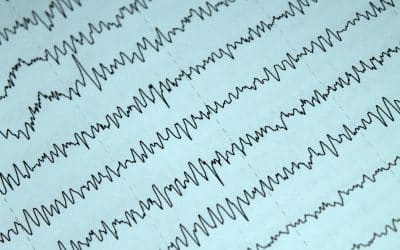HBOT News & Research
Hyperbaric Oxygen Therapy (HBOT) is increasingly appearing in the news and new research as a treatment for a variety of conditions involving inflammation. Use the search or select an article below to to keep up to date on the most recent HBOT News.
Recent Hyperbaric Oxygen Therapy (HBOT) News
Non-Canonical Regulation of Type I Collagen through Promoter Binding of SOX2 and Its Contribution to Ameliorating Pulmonary Fibrosis by Butylidenephthalide.
Abstract: Pulmonary fibrosis is a fatal respiratory disease that gradually leads to dyspnea, mainly accompanied by excessive collagen production in the fibroblast and myofibroblast through mechanisms such as abnormal alveolar epithelial cells...
Impact of Hyperbaric Oxygen on More Advanced Wagner Grades 3 and 4 Diabetic Foot Ulcers: Matching Therapy to Specific Wound Conditions.
The goal of this research was to identify a population of diabetic foot ulcer patients who demonstrate a significant response to hyperbaric oxygen therapy (HBOT) using a large sample size to provide guidance for clinicians when treating these complicated patients. The effect of HBOT on diabetic foot ulcers, Wagner grades 3 and 4, was evaluated using a retrospective observational real-world data set. The study reported on the overall healing rate, (74.2%) at the population level, for >2 million wounds. When a subgroup of patients of only foot ulcers with a Wagner grade 3 or 4 were considered, the healing rate was only 56.04%. The use of HBOT, without filtering for the number of treatments received, improved the healing rate to 60.01% overall.
The American Society of Colon and Rectal Surgeons Clinical Practice Guidelines for the Treatment of Chronic Radiation Proctitis.
The American Society of Colon and Rectal Surgeons (ASCRS) is dedicated to ensuring high-quality patient care by advancing the science, prevention, and management of disorders and diseases of the colon, rectum, and anus. The Clinical Practice Guidelines Committee is charged with leading international efforts in defining quality care for conditions related to the colon, rectum, and anus by developing clinical practice guidelines based on the best available evidence. These guidelines are inclusive, not prescriptive, and are intended for the use of all practitioners, healthcare workers, and patients who desire information about the management of the conditions addressed by the topics covered in these guidelines. Their purpose is to provide information on which decisions can be made rather than to dictate a specific form of treatment.
Articles You May Have Missed.
Abstract: Background: Dementia is a leading cause of death and disability worldwide. Anticholinergic drugs have been frequently associated with a negative effect on cognition and increased risk of dementia. Previous studies have been restrained by...
Hyperbaric Oxygen Therapy in Necrotizing Soft Tissue Infections: A Retrospective Study.
Abstract: Necrotizing soft tissue infection is a severe life-threatening disease correlated with high mortality. Until now, therapeutic concepts include antimicrobial, intensive care and surgical interventions, as well as the application of...
The Use of Pulsed Electromagnetic Fields to Promote Bone Responses to Biomaterials In Vitro and In Vivo
Abstract Implantable biomaterials are extensively used to promote bone regeneration or support endosseous prosthesis in orthopedics and dentistry. Their use, however, would benefit from additional strategies to improve bone responses. Pulsed...
[HYPERBARIC OXYGEN THERAPY (HBO) FOR RADIATION NECROSIS – PHYSICIAN AWARENESS IS REQUIRED].
Abstract: Hyperbaric oxygen (HBO) therapy is the inhalation of 100% oxygen at a pressure of at least 1.4 atmospheres absolute (ATA), 140 kPa, in the hyperbaric chamber. The therapeutic effect is obtained by delivery of oxygen to the tissues...
[HYPERBARIC OXYGEN TREATMENT FOR POST RADIATION NECROSIS].
Abstract: Radiation therapy is an acceptable treatment for several types of malignancies. Despite advances in technology, the adverse effects of radiation therapy are still common. Tissue radio necrosis/post radiation necrosis is a frequent adverse...
The Multiple Applications and Possible Mechanisms of the Hyperbaric Oxygenation Therapy.
Abstract: Hyperbaric Oxygenation Therapy (HBOT) is used as adjunctive method for multiple diseases. The method meets the routine treating and is non-invasive, as well as provides 100% pure oxygen (O2) which is at above-normal atmospheric pressure...

